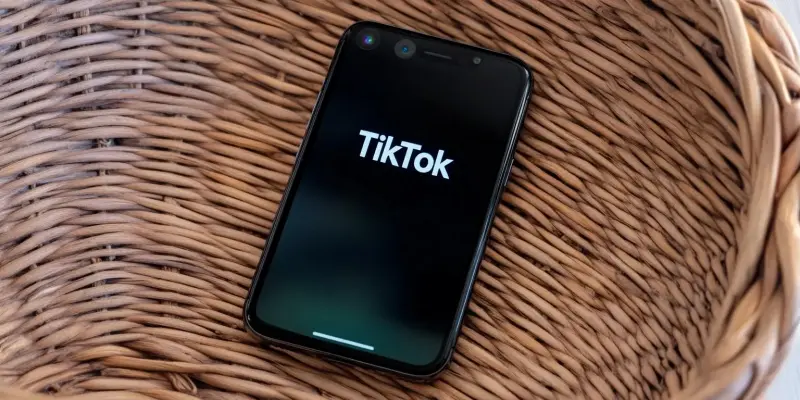As the United States approaches the deadline for a potentially unprecedented move, tech giants Apple and Google have been warned by US lawmakers to prepare their app stores to enforce a ban on TikTok by January 19, 2025. Representatives John Moolenaar (R-MI) and Raja Krishnamoorthi (D-IL) have penned letters to the CEOs of Apple, Google, and TikTok, urging them to comply with the Protecting Americans from Foreign Adversary Controlled Applications Act. Should TikTok’s Chinese parent company ByteDance fail to divest itself of the app, the law would make it illegal for app stores to distribute, maintain, or update TikTok within the US, thereby rendering the app unusable for American users.
National Security Concerns
Lawmakers’ Emphasis on Threats from Chinese Ownership
The lawmakers highlight the national security threat posed by TikTok under its current Chinese ownership. Their argument hinges on the potential surveillance and influence from the Chinese Communist Party (CCP) that could compromise American users’ data. They stress this point by referencing the 233 days TikTok has had to comply with the divestiture requirement since the directive was signed into law by President Biden in April. This extended time frame was intended to allow ByteDance ample opportunity to sever its ties with TikTok, but the parent company has yet to take decisive action.
Citing the need to protect American users, these letters outline the legislators’ firm stance on the issue. By making a case for TikTok’s removal from app stores, the lawmakers argue that continued oversight by ByteDance could lead to potentially harmful outcomes. Their concerns are amplified by past instances where TikTok’s data handling practices have been called into question, further justifying their call for preventive measures. As the clock ticks down to the deadline, the sense of urgency among these lawmakers grows, reflecting their persistent worry over national security threats.
Protecting Americans from Foreign Adversaries
The Protecting Americans from Foreign Adversary Controlled Applications Act mandates ByteDance to divest TikTok to avoid a nationwide ban. This act is underscored by a recurring theme of safeguarding American sovereignty against foreign influences. The law denies any app controlled by foreign adversaries a platform in the United States, focusing specifically on applications that may jeopardize user data and national security. The lawmakers’ letters emphasize this legislation as a crucial step in mitigating risks associated with foreign-controlled tech platforms.
Amid these warnings, ByteDance and TikTok have pursued legal avenues to challenge the ban. They filed an emergency motion with the US Court of Appeals, contending that the law unjustly targets TikTok and threatens to disrupt service for its 170 million domestic users. Despite their efforts, a three-judge panel upheld the act, placing ByteDance under increasing pressure to comply or face imminent shutdown. The legal proceedings have kept the spotlight on TikTok, framing the case as a critical battle over digital privacy and control within US borders.
Legislative and Judicial Actions
Legal Battles and Appeals
ByteDance’s legal struggle against the impending TikTok ban has been marked by vigorous courtroom debates and strategic motions. After the US Court of Appeals upheld the Protecting Americans from Foreign Adversary Controlled Applications Act, ByteDance sought an emergency intervention, arguing the law’s implementation would effectively shut down TikTok for its vast user base in the country. This legal maneuver reflects ByteDance’s determination to resist divestiture, hinging its arguments on the potential disruption to millions of users who rely on the platform for content creation and social interaction.
Nevertheless, the court’s decision maintained that the act is within legal bounds and justified by national security concerns. ByteDance’s hope now lies in a possible appeal to the Supreme Court. Should the Supreme Court overturn the previous ruling, TikTok could potentially stave off the ban. However, without such an intervention, ByteDance faces a challenging path ahead as it navigates the legal intricacies involved. The upholding of the act by the appeals court signifies a substantial endorsement of the lawmakers’ concerns and casts doubt on ByteDance’s likelihood of prevailing in the higher court.
Government Support and Presidential Authority
As the United States nears the deadline for a potentially game-changing action, tech giants Apple and Google have been cautioned by US lawmakers to ensure their app stores are prepared to enforce a ban on TikTok by January 19, 2025. Representatives John Moolenaar (R-MI) and Raja Krishnamoorthi (D-IL) have written to the CEOs of Apple, Google, and TikTok, urging them to comply with the Protecting Americans from Foreign Adversary Controlled Applications Act. This legislation mandates that if TikTok’s parent company, ByteDance, does not sell its stake in the app, it would become illegal for app stores to distribute, maintain, or update TikTok in the United States. Failure to comply would essentially render TikTok unusable for American users. The rationale behind this push is the growing concern over national security risks posed by foreign-controlled applications, particularly those with ties to China. This move underscores the broader effort to protect Americans’ data from potential foreign exploitation.

